As a therapist, self-care is an essential ritual for lone workers. We were advised that self-care practices are necessary for the body, mind and spirit. I have always make time for daily routines which helped me balance work, life, and personal joy.
Self-care aims to relax, unwind, and maintain a healthy state of being with oneself and one-spirit. It is a set of routines and practices that help to boost physical, psychological and emotional states. Think of self-care as healing practices for the body, mind and soul. The nurturing ritual helps prevent exertion, exhaustion and burnt-out. Self-care strategy will be different for everyone because it has a purpose attached to the practice. Some people find running as a self-care ritual more useful than others. Some people prefer a relaxing bubble bath with soothing music. And some prefer to be comfortable by the fire. Whatever the ritual, it is vital to adopt self-care practices that work for you.
 There are many examples of self-care, including regular exercise, eating well, getting enough sleep, be in nature and taking frequent breaks or rest. But, it might help to think of self-care as a fun part of your daily ritual, rather than something you are compelled to do, like a chore. I emphasise fun and playful activities that you enjoy on a daily basis because sometimes we think of self-care only periodically.
There are many examples of self-care, including regular exercise, eating well, getting enough sleep, be in nature and taking frequent breaks or rest. But, it might help to think of self-care as a fun part of your daily ritual, rather than something you are compelled to do, like a chore. I emphasise fun and playful activities that you enjoy on a daily basis because sometimes we think of self-care only periodically.
Thus, I am sharing some of my essential daily self-care rituals here. I hope you find it helpful, and perhaps it might inspire to think of your own.
- Make time for yourself.
One of the important thing for me is me-time. It is a time set aside to be alone with your thoughts, with your feeling and emotion, whatever they may be. It is a time that I am still, contemplative and peaceful. I often do this outside, standing in nature watching, listening to birds or the howling of the wind. Feeling the cool breeze on my face, I stood appreciatively. Making time to appreciate being with oneself in the stillness. It is about being alone with the whole of yourself. This is simply about making time to be.
- Make time for meditation
Meditation is about an observation of the stillness within and of the mind. It is about being with that stillness and being inside our psyche. There is a misconception that busy-mind makes meditation difficult, and it is not just about the breath. But, this is precisely when one should consider meditation. Meditation is a tool to help the busy-ness of the mind and listen to our internal voices, and that is when you become aware of your breathing.
You can do meditation almost anywhere, but not while operating any machine or driving. You can do walking meditation, sitting down meditation and laying down meditation.
 The mind never sleeps. The conscious mind is continually evaluating the input from our senses. The unconscious mind never shut off because it automates body regulatory, circuitry systems, such as keeping a steady sinus rhythm. Meditation is a state of being still in the body so that you can go within the psyche to observe thoughts, listen to what you are thinking about and notice comes up for you when cognitively being aware of what is in your mind. What you think you will manifest. Be sure to think only positive thoughts.
The mind never sleeps. The conscious mind is continually evaluating the input from our senses. The unconscious mind never shut off because it automates body regulatory, circuitry systems, such as keeping a steady sinus rhythm. Meditation is a state of being still in the body so that you can go within the psyche to observe thoughts, listen to what you are thinking about and notice comes up for you when cognitively being aware of what is in your mind. What you think you will manifest. Be sure to think only positive thoughts.
- Have love in your heart
Self-care is about self-love and loving oneself and one’s shadows. Tell yourself that you love yourself is not narcissistic unless you adversely admire yourself adoringly. This is more of a confirmation for self to build inner confidence. It is also about one part of yourself telling another part that you love the unloveable. I think that if we can express self-love, we can then express that love to another. We have to hold love ourself before we can demonstrate love another. In so doing, we can know intimately how we feel loved, then we can share it.
 A loving act for me includes feeling joyful, having fun and laughing at myself, lovingly. It is ultimately a knowing that you embrace with heart and soul. It is enough to say things like; I love my hair today, I love how I handle that argument today, I love the way I spoke my truth, even though not everyone agreed. It is quite alright to say; I love my voice, I love my flaws, etc. Whatever you dislike about yourself, try to reverberate your thoughts by expressing and vocalising your love, out loud.
A loving act for me includes feeling joyful, having fun and laughing at myself, lovingly. It is ultimately a knowing that you embrace with heart and soul. It is enough to say things like; I love my hair today, I love how I handle that argument today, I love the way I spoke my truth, even though not everyone agreed. It is quite alright to say; I love my voice, I love my flaws, etc. Whatever you dislike about yourself, try to reverberate your thoughts by expressing and vocalising your love, out loud.
- Find a way to have fun or something that makes you smile.
This is my favourite, and every day is an exciting challenge (and I say this with a smile) to find or do. It is often fun that put a smile on my face and on those of another. It does not take much. A friend once said to me:
“A smile begins with you.”
I smiled when I walked around the house, and my cuddlies are moved from the bed. The plush toys would appear in the room when my back is turned. My husband moved them into the room I happened to be, of course. Then, I walked them back to another auspicious location where they will be found by him. We have this game throughout the day, and it is fun for both of us. I may be watching the dishes, and then my favourite plush toy appears on the table behind me. These are moments of joy.
“Smile and the whole world will smile with you.” – Stanley Gordon West.
Doing something fun for me is simply doing something that makes me and another smile, laugh and affectionate. Doing something nice for another to make them smile or laugh always bring a smile to my face. It will be different for everyone, and it is deeply personal and subjective. I also find rearranging my house fun. It is both practical and catharsis as I let go of the old. I find pottering fun as I get my hands dirty in the dirt, connecting to the Earth helps ground me to Gaia. I find filing fun as I mindfully organise paperwork. And I also find making soup fun.
What is your fun?
- Find your grooming ritual
A healthy body equals a healthy mind. I love spending time painting my toenails, but not my fingernails so much. I find that self-care is also body-care. I like my hair brushed, despite leaving long strand all around the house. Sometimes, I think we take grooming for granted because we do it every day. But, if you contemplate your grooming acts, notice how much more enjoyable it is. For me, each brushstroke is a sensation that I feel energetically, as an individual strand of hair is being stroked.
It is essential to maintain a healthy body through a grooming ritual. I love getting my hair wash, cut and blow-dry. But, the feel of water on my skin really what I love.
 Water has healing nourishing and nurturing properties, which is why it is used in many religious rituals. Next time you are in the shower, feel the sensation of each water droplets on your skin.
Water has healing nourishing and nurturing properties, which is why it is used in many religious rituals. Next time you are in the shower, feel the sensation of each water droplets on your skin.
Self-grooming is both holistic and therapeutic for the body, mind and spirit. When the body feels good, so does the mind. You know what makes you feel good when it comes to taking care of your body. It is merely to do more of that.
- Organise your space
Personally, I feel that organising the physical space in the home, work and life gives me a sense of orderliness. But it is more than neatness, cleanliness and tidiness. It helps me manage the internal psyche if my physical space is clutter-free and systematic. It is a way to methodically organise my internal world if my outer world is orderly. I’d already mentioned that it is fun to rearrange my bookcases, clothes, kitchen cupboards etc. It is also therapeutic to organise the spaces around me, as I, mindfully, restructure my outer world. Moreover, in the organisation, I am also letting go of the tension, stress and worries that were attached to the material items. Yet, it is also about rearranging the space, files or library of repertoire, in the mind, as well as the physical space.
With the looming uncertainties within the outer world, there is a clear need for self-care rituals. Especially when we are currently in another lockdown and our days, weeks are becoming a blur. As each day blend into yet another day, the mundane can become repetitive, and we can lose track of the days. It is more crucial than ever to maintain a healthy mindset with self-care rituals that work for you. If you can tap into your creativity, why not make the mundane into something fun. Perhaps you like dancing, why not dance around while you work. Perhaps you like singing, sing while you work. You know where I am going with this.
So, what are you waiting for? Get creative and find your self-care rituals. I’d love to hear what works for you.
Do you find this blog helpful? If you like this post, I love to hear from you on my Twitter Page.



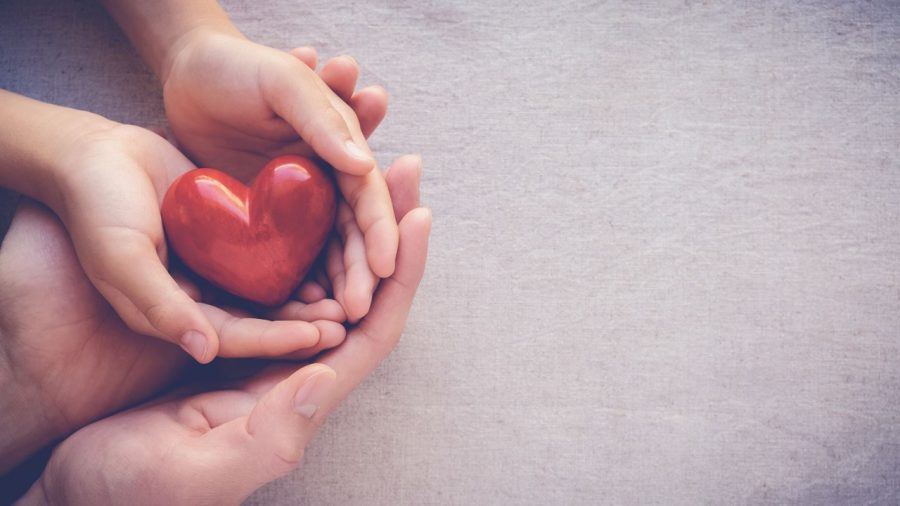
 As a psycho-spiritual therapist, I believe that the physical body has two ‘minds’; the cognitive-mind and the heart-mind. Therein, the brain is the cognitive-mind, and the heart is the heart-mind. It might help if you think of the brain as the all-knowing ‘supercomputer’. Memories, experiences, and programmings are stored. Thus, the heart is the ‘operator’, the user, the decision-maker. Imagine making your decisions from the heart. Henceforth, I want to discuss the concept of heart-mind further because I believe that this is the primary and the brain is secondary.
As a psycho-spiritual therapist, I believe that the physical body has two ‘minds’; the cognitive-mind and the heart-mind. Therein, the brain is the cognitive-mind, and the heart is the heart-mind. It might help if you think of the brain as the all-knowing ‘supercomputer’. Memories, experiences, and programmings are stored. Thus, the heart is the ‘operator’, the user, the decision-maker. Imagine making your decisions from the heart. Henceforth, I want to discuss the concept of heart-mind further because I believe that this is the primary and the brain is secondary.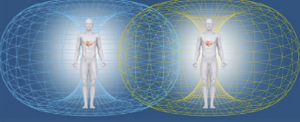 The heart has an energy centre known as the
The heart has an energy centre known as the  If you use your mind to think about making a decision, it is safe to say that you are not as connected to your heart-mind. If you take time to ponder a decision or find it difficult to make up your mind, you are probably mind-identified. Decision-making from the heart-mind often comes from a ‘feeling’ or an intuition. The heart is our source of love, creativity and inspiration. Sometimes, decisions from the heart are illogical, baseless, spontaneous and impulsive.
If you use your mind to think about making a decision, it is safe to say that you are not as connected to your heart-mind. If you take time to ponder a decision or find it difficult to make up your mind, you are probably mind-identified. Decision-making from the heart-mind often comes from a ‘feeling’ or an intuition. The heart is our source of love, creativity and inspiration. Sometimes, decisions from the heart are illogical, baseless, spontaneous and impulsive. Place your hand on your heart and literally listens to the harmonious, rhythmic heart beating. It should beat in a gentle rhythm, the soft sounds of the tempo should be melodic and not like an offbeat syncopation. Listen to your gentle, beating heart and notice your senses. Do you feel any tingling, flood of warmth or goosebumps? These are the sensation of energy moving through your body, surging and filling you with good feelings. A loving feeling has the highest frequency, as mentioned in last month’s
Place your hand on your heart and literally listens to the harmonious, rhythmic heart beating. It should beat in a gentle rhythm, the soft sounds of the tempo should be melodic and not like an offbeat syncopation. Listen to your gentle, beating heart and notice your senses. Do you feel any tingling, flood of warmth or goosebumps? These are the sensation of energy moving through your body, surging and filling you with good feelings. A loving feeling has the highest frequency, as mentioned in last month’s  When you speak to others, notice your language, the word you use and in what context. If you can relate to others from an adult to adult, not from an adult to a child or a parent, you are halfway to using the I/thou language. This concept simply means speaking to someone compassionately while taking responsibility for your feeling, words, and language. Here is an example of an I/though language:
When you speak to others, notice your language, the word you use and in what context. If you can relate to others from an adult to adult, not from an adult to a child or a parent, you are halfway to using the I/thou language. This concept simply means speaking to someone compassionately while taking responsibility for your feeling, words, and language. Here is an example of an I/though language: This is probably the most important tip. Believe it or not, but your thoughts are being heard by others. Even if you never speak it, what you think about consciously is being received ‘telepathically’ by the other person. We unconsciously broadcast the ‘unspoken’ conscious thoughts into our energetic field.
This is probably the most important tip. Believe it or not, but your thoughts are being heard by others. Even if you never speak it, what you think about consciously is being received ‘telepathically’ by the other person. We unconsciously broadcast the ‘unspoken’ conscious thoughts into our energetic field.
 Growing up with traditional Buddhist practices, I often thought that attending the temple for prayer was tedious. However, as I sat through the Thai Buddhist monks chanting, I instantly felt mentally relaxed, peaceful and calmed. The melodic sounds of the chant were mesmerising.
Growing up with traditional Buddhist practices, I often thought that attending the temple for prayer was tedious. However, as I sat through the Thai Buddhist monks chanting, I instantly felt mentally relaxed, peaceful and calmed. The melodic sounds of the chant were mesmerising. Love, for example, has a high frequency around 500Hz, whereas, fear has a low frequency at 100Hz. When you feel love for yourself or others, you cannot and will not feel the fear. Thus, it is worth choosing a positive feeling or emotion, which is better for health and wellness.
Love, for example, has a high frequency around 500Hz, whereas, fear has a low frequency at 100Hz. When you feel love for yourself or others, you cannot and will not feel the fear. Thus, it is worth choosing a positive feeling or emotion, which is better for health and wellness. Being open-minded is a willingness to consider new ideas or concepts without prejudices. An open-minded person will have the ability to considered other perspective, can be empathetic, to others, even if you disagree. In this state, you are flexible in your approach to learning and accepting new options, opportunities, suggestions, and inspirations. With an open mind, you will see things start to manifest, as you become receptive, you will attract like for like.
Being open-minded is a willingness to consider new ideas or concepts without prejudices. An open-minded person will have the ability to considered other perspective, can be empathetic, to others, even if you disagree. In this state, you are flexible in your approach to learning and accepting new options, opportunities, suggestions, and inspirations. With an open mind, you will see things start to manifest, as you become receptive, you will attract like for like.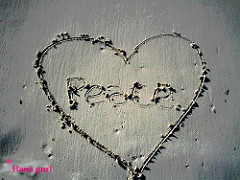 Love has high frequencies which are beneficial to instantly lift your moods and emotional frequencies. When you feel love and appreciation, negative or low frequencies cannot exist at the same moment. If you find it difficult to ‘feel love’ trying doing something that you truly love. A loving feeling is a feeling of immense happiness, joy, connection, fulfilment, fondness, warmth, and tenderness. It is a blissful feeling towards someone or something. A true loving feeling is unconditional and unbounded. For me personally, I love water, nature and the sounds of a Wren singing in the distant, as I bathed in the warm sunny sky. You get the picture.
Love has high frequencies which are beneficial to instantly lift your moods and emotional frequencies. When you feel love and appreciation, negative or low frequencies cannot exist at the same moment. If you find it difficult to ‘feel love’ trying doing something that you truly love. A loving feeling is a feeling of immense happiness, joy, connection, fulfilment, fondness, warmth, and tenderness. It is a blissful feeling towards someone or something. A true loving feeling is unconditional and unbounded. For me personally, I love water, nature and the sounds of a Wren singing in the distant, as I bathed in the warm sunny sky. You get the picture. Gratitude has high frequencies also, which can instantly transcend your emotions. It can instantly lift your low moods to a good mood. But, you have to really believe and be grateful. There has to be an element of humbleness within this process in order to feel thankful for something. For example, showing appreciation for your good health, being appreciative of your partner, be thankful to your family and friends by simply saying it out loud. I feel grateful for my good health. I feel grateful to my partner for his love and support. I feel grateful for my family. If you find it hard to say that you are grateful to the person, say it in your mind – they will receive the feeling all the same. Make a list of the things that make you grateful.
Gratitude has high frequencies also, which can instantly transcend your emotions. It can instantly lift your low moods to a good mood. But, you have to really believe and be grateful. There has to be an element of humbleness within this process in order to feel thankful for something. For example, showing appreciation for your good health, being appreciative of your partner, be thankful to your family and friends by simply saying it out loud. I feel grateful for my good health. I feel grateful to my partner for his love and support. I feel grateful for my family. If you find it hard to say that you are grateful to the person, say it in your mind – they will receive the feeling all the same. Make a list of the things that make you grateful.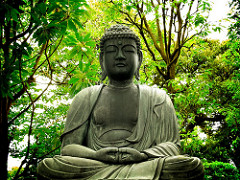 You can build a mantra, an affirmation or prayer into your daily life that includes feeling love for yourself and others. A mantra can be something that you repeat during meditations, walking, exercising or when doing a mundane task. An affirmation is a statement that you keep repeating until it becomes second nature. A prayer can be anything that you say with closed eyes to God, The Higher Power, Holy Spirit or the Universe.
You can build a mantra, an affirmation or prayer into your daily life that includes feeling love for yourself and others. A mantra can be something that you repeat during meditations, walking, exercising or when doing a mundane task. An affirmation is a statement that you keep repeating until it becomes second nature. A prayer can be anything that you say with closed eyes to God, The Higher Power, Holy Spirit or the Universe.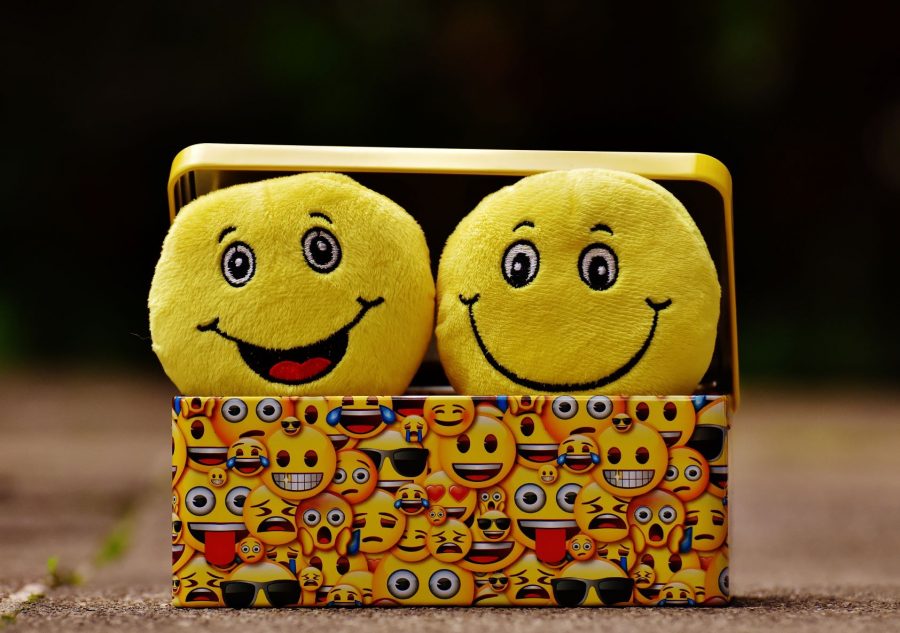




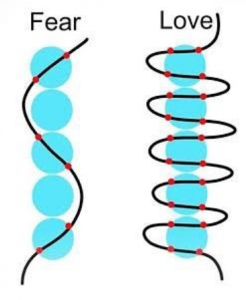 It often helps to name our emotions. This is because emotion has an
It often helps to name our emotions. This is because emotion has an  I want to discuss the concept of masking in Psychology further.
I want to discuss the concept of masking in Psychology further. Fear not, I can offer some helpful tips to those individuals who’d like to remove their (psychological) masks – but keep the COVID-19 cover on (for now). Here’s how:
Fear not, I can offer some helpful tips to those individuals who’d like to remove their (psychological) masks – but keep the COVID-19 cover on (for now). Here’s how: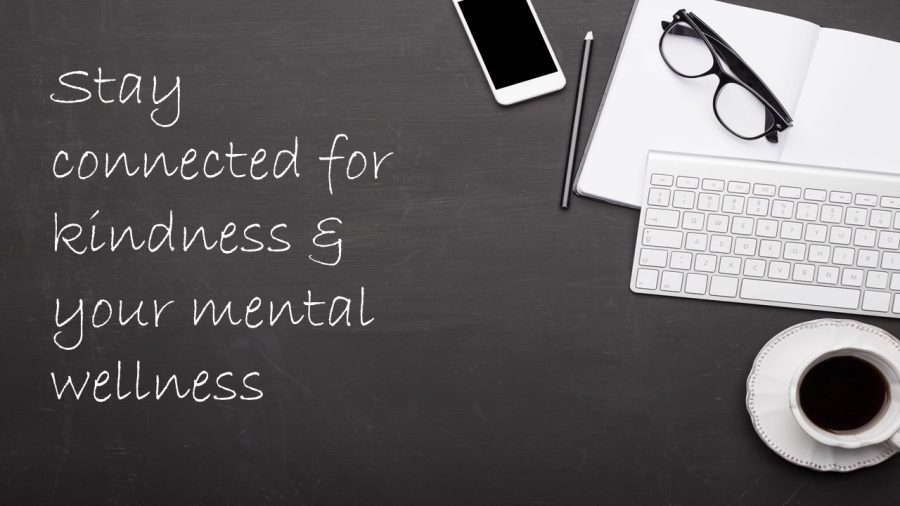
 Physiologically, people with strong ties or connections in a relationship have fewer health problems, less stressed, less depressed and improved mental wellness. Adverse to the effect, people who lack connection with themselves, others or their community have increased stress and depression, accelerated cardiovascular risks, loneliness, isolation and a higher chance of suicidal tendency.
Physiologically, people with strong ties or connections in a relationship have fewer health problems, less stressed, less depressed and improved mental wellness. Adverse to the effect, people who lack connection with themselves, others or their community have increased stress and depression, accelerated cardiovascular risks, loneliness, isolation and a higher chance of suicidal tendency.
 How well do you trust depends upon many factors. It is something that you learn, nurture and develop. It forms a set of behaviours and personality traits. It is also a belief with you hold as values and it determined your interaction with an individual. It is a sense of security within the relationship or process. It is dynamic and engaging. It is both benevolence and integral to all relationship within oneself, with others and with the world. If you have trust in yourself, in another and in the world, predictably, there will be cognizant.
How well do you trust depends upon many factors. It is something that you learn, nurture and develop. It forms a set of behaviours and personality traits. It is also a belief with you hold as values and it determined your interaction with an individual. It is a sense of security within the relationship or process. It is dynamic and engaging. It is both benevolence and integral to all relationship within oneself, with others and with the world. If you have trust in yourself, in another and in the world, predictably, there will be cognizant.
 2. Soothing sounds of the opposite.
2. Soothing sounds of the opposite. 3. Rebelling against helplessness.
3. Rebelling against helplessness.  4. Rethink the mundane.
4. Rethink the mundane. 5. Lack of motivation by attachment.
5. Lack of motivation by attachment.